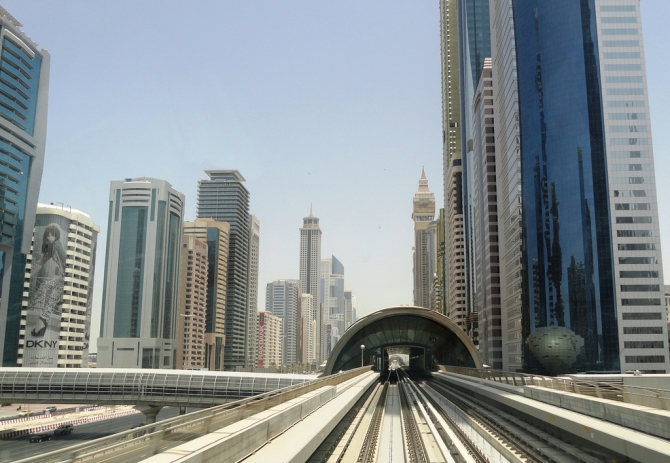Dubai has hinted that its post-crisis real estate strategy will include more focused attempts to attract industrial and commercial investors while keeping a tighter rein on the rental market.

According to a department of finance report — The Global Financial Crisis: Lessons Learned — the Dubai government will focus its property market on the advanced industrial sectors and commercial real estate such as hotels, malls and offices. The same sectors the property service provider JLL says were “showing strong and relatively broad based growth” during the fourth quarter of 2013.
The company also predicted Dubai office stocks would increase from 7.3m square metres to 8.6m square metres within the next two years with the rapidly expanding Business Bay area of Dubai witnessing the most demand. So far, JLL added, there had been no major change in office rents with only marginal increases in some prime buildings.
Five years ago when deteriorating global conditions caused a property bubble to burst in Dubai, prompting real estate prices to plunge by more than 50 per cent, the emirate came close to defaulting on its debt. Now, buoyed by a renewed inflow of money from abroad Dubai’s residential prices jumped more than 20 per cent during 2013 and analysts estimate they may return to pre-crisis levels by next year.
“The rapid price growth, a return of speculation, and the dominance of cash buyers in the residential property market could translate into excessive prices or over development and that, if not managed carefully, could result in another bubble,” warned LaSalle.
Dubai also does not want to be saddled with a reputation of being a costly place from which to do business. The latest semi-annual report from CBRE places the emirate’s commercial property as being the 23rd most expensive in the world.
Keeping rents in check, for both commercial and residential properties, is an issue the government of Dubai is already addressing. His Highness Shaikh Mohammad Bin Rashid Al Maktoum, Vice-President and Prime Minister of the United Arab Emirates and Ruler of Dubai, issued a decree last December putting a cap on property rent increases allowed when tenancy contracts are renewed.
Other steps announced in the finance department report include developing fiscal discipline on lending operations, paying more attention to public sector organisation structure and maintaining its size within acceptable boundaries. It also wants to see an increase in government revenues, improved operational efficiency with tighter controls on spending, and a review of the development plan and monitoring the economy.
“The emirate should be prepared for any crisis, particularly when the economy is passing through prolonged periods of prosperity and growth as mistakes are overlooked, accumulated and lead to a crisis,” it added. “Therefore, caution should be taken and periodic reviews of monetary and fiscal policies undertaken.”
Previous Post
Battersea Studios sold in £35m Deal